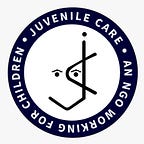LIVING FREE AND EQUAL: EVOLUTION OF LGBTQ+ RIGHTS IN INDIA AND TAKING THE NARRATIVE FORWARD!
By: Sannidhya Shanvi
The 6th of September, 2018, in India was not just any ordinary day. After years of struggle and mind-numbing toil, the LGBTQ+ community in India finally received the one news they had all been waiting for. On this day, the supreme court of India delivered a historic verdict of decriminalizing homosexuality by partly striking the section 377 of the Indian Penal Code.
This led to a joyous celebration amongst the LGBTQ+ community across India, celebrating their victory against the 200 year old British law that marked “same sex relationships” as criminal.
The significance of the entire judgement can be concluded with the below statement made by Justice Indu Malhotra while giving her verdict.
“History owes an apology to the members of this community and their families, for the delay in providing redressal for the ignominy and ostracism that they have suffered through the centuries.”
EVOLUTION OF THE LGBTQ+ RIGHTS - How the fight shaped up
The verdict, which was given after a two decade long legal fight against the brutal law, should be considered as the beginning of a new era in the fight of the LGBTQ+ community in India. While this success was just the tip of the iceberg, it came as a result of an extremely long battle against the inhumane law.
The beginning of this movement started back in the 1990s. In the early 2000s, a case was filed by an NGO in New Delhi, called the Naz Foundation, claiming that section 377 of the IPC violated our fundamental rights which was eventually proven right in the court. This claim however was challenged in the next few years and the decision was overturned and same sex relationship was “re-criminalized” again.
Another landmark decision was that of identifying the transgender officially as a third gender in India and was even a benchmark decision for the LGBTQ+ community. They also were granted reservations in admissions to educational institutions and jobs.
Further, on 6th September, 2018, a five-judge bench of the Supreme Court of India, held the Section 377 to be unconstitutional and finally history was achieved.
STRUGGLES FACED BY THE COMMUNITY
It isn’t new to us that the LGBTQ+ community have always faced numerous difficulties in a country where homosexuality was considered criminal. Due to this homophobia in the country, they had to face negligence, intolerance, discrimination and harassment. They were repeatedly reminded that they are different and have also faced severe violence in every sphere of their lives.
Some other crucial issues also include lack of job opportunities, no job security which in most cases lead to depression, low self esteem and low confidence.
This had to stop!
THE WAY FORWARD
While it is extremely relieving that same sex relationships have been decriminalized in India, one major challenge that the community still face is their social status in terms of the discrimination and harassment that they face. Justice will only be given to the community, when people accept them naturally and understand that the lives of the LGBTQ+ community cannot and should not be governed by the society.
Moving forward, the LGBTQ+ community are now fighting for the right to marriage, right to adoption, right against discrimination and the right against sexual assault.
It is imperative that it is our responsibility, as a society, to stand by them in their battle for the rights and the respect they equally deserve.
